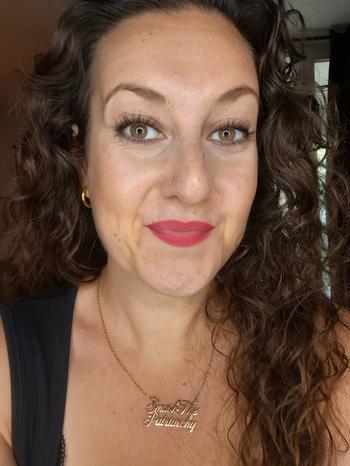Dr. Carolin Loysa

Freie Universität Berlin
ZI Lateinamerika-Institut
Wissenschaftliche/r Mitarbeiter/in
Kulturanthropologie / Altamerikanistik / Gender Studies
Sprechstunde
appointment via e-Mail:
carolin.loysa@fu-berlin.de
Carolin Loysa is a Scientific Assistant in Cultural and Social Anthropology and Gender Studies at the Institute for Latin American Studies, Freie Universität Berlin. Since June 2025, she also serves as Chairperson for Diversity and Anti-Discrimination at the university. Additionally, she is the Gender Equality Officer of her institute.
Her work bridges urban and political anthropology, migration studies, affect theory, gender studies, and critical whiteness studies, with a regional focus on Mexico and Lebanon. Her research is grounded in queer-feminist and decolonial epistemologies, drawing on thinkers such as Audre Lorde, Maria Lugones, Zora Neale Hurston, and Lila Abu-Lughod. She engages epistemologies from the Global South to explore how knowledge, power, and identity intersect.
Teaching, for her, is a social and political practice—following the pedagogical principles of bell hooks. She completed her PhD summa cum laude with the dissertation The Precarity of Progress: Class, Race, and the Mallification of Puebla, Mexico.
______________________________________________________________________________________________
Carolin Loysa ist Wissenschaftliche Mitarbeiterin im Bereich Kultur- und Sozialanthropologie und Gender Studies am Lateinamerika-Institut der Freien Universität Berlin. Seit Juni 2025 ist sie zudem Beauftragte für Diversität und Antidiskriminierung der Universität. Außerdem ist sie Frauen- und Gleichstellungsbeauftragte ihres Instituts.
Ihre Arbeit verbindet urbane und politische Anthropologie, Migrationsforschung, Affekttheorie, Gender Studies und Critical Whiteness Studies, mit einem regionalen Schwerpunkt auf Mexiko und dem Libanon. Ihre Forschung ist in queer-feministischen und dekolonialen Epistemologien verankert und orientiert sich an Denkansätzen wie denen von Audre Lorde, Maria Lugones, Zora Neale Hurston und Lila Abu-Lughod. Sie arbeitet mit Wissensansätzen aus dem Globalen Süden, um das Zusammenspiel von Macht, Wissen und Identität kritisch zu beleuchten.
Ihre Lehre versteht sie – im Sinne von bell hooks – als soziale und politische Praxis. Carolin Loysa promovierte mit der Dissertation The Precarity of Progress: Class, Race, and the Mallification of Puebla, Mexico (summa cum laude).
WiSe 2019, 2020 & 2021: Interdisziplinäre Lateinamerikastudien
WiSe 2020: Talking about class and race. Ethnographische Perspektiven auf soziale Ungleichheiten in Lateinamerika
WiSe 2021 & 2023: Theorien und Methoden der Kultur- und Sozialanthropologie
SoSe 2020, 2021, 2022 & 2023: Urbane Anthropologie
WiSe 2024: The “anthropologist princess”: decolonizing urban anthropology
SoSe 2025: Between Latinamerica and the Middle East – Ethnographic Approaches to the Global South
WiSe 2025: Queer(ing) Ethnography: Methoden und Konzepte
Current Research Project
The value of San Charbel: Lebaneseness between Mexico and Phoenecia
Research Areas and Interests
- Urban Studies
- Decolonial I Queer-feminist epistemologies
- Intersectional inequalities
- Critical Whiteness Studies
- Migration
- Political Cultures
- Mexico I Lebanon
Completed Doctoral Project
The Precarity of Progress.
Class, Race, and the Mallification of Puebla, Mexico
Supervisors: Univ.-Prof. Dr. phil. Ingrid Kummels, Univ.-Prof. Dr. Carlos Alba Vega (El Colegio de Mexico)
Short Abstract
The dissertation explores the everyday practices of the upper middle classes in one of Mexico’s most emblematic shopping malls, located in the city of Puebla. The Angelópolis mall is embedded in an extensive urbanization project that was endorsed by the local and federal government and served as a structuring element for the spatial reconfiguration of the city, which arguably enhanced social urban fragmentation. This study addresses the consequences/results of extreme neoliberal urbanization in relation to the city’s middle classes as the putative beneficiaries of these urban developments. The mall functions as an object of study that is constituted as a spatial-material epitome of neoliberal values.
Exploring the mall-realities of the upper middle classes – advertised as the target group for the mall – and their practices of distinction in spatial proximity to others reveals deep-rooted connections between class and race discriminations in this urban society. These are displayed in the narratives and practices of the upper middle classes in the mall as they seek to maintain social status in a context of increasing social and economic precarity.
The thesis further displays historic continuities of urban functions that can be related to the mall, underscoring the importance of considering the specific local and social peculiarities and possible repercussions of the implementations of these urban projects, especially in a postcolonial context. Through this, this study also centrally questions the often-heard phrase that Mexico is classist rather than racist by paying attention to the social disparities in(side) the middle classes.
In this study, social and economic inequality – though there is undoubtedly a relation – do not necessarily describe the same thing, as is often assumed in studies on the middle classes. On a macro scale, the relation between social and economic factors is an interesting indicator for social mobility in the context of neoliberal urbanization in colonized countries. It shows that social status can be negotiated separately from financial status by the dominant groups, revealing their own precarity and vehemently contradicting the promises of neoliberal free-market ideology. It displays the precarity of progress, with progress as the central notion of this ideology, and reveals how the chance to upward social mobility is not equally available to all actors.
(2024) Dismantling the ethnographer’s house: on Mexican middle classes and shopping malls, in “Rethinking the Meaning of Class in Ethnographic Research Practice”, Kulturanthropologie Notizen, Bd. 86. https://doi.org/10.21248/ka-notizen.86.43
(2021) Klassismus in Mexiko, in Revista - Noticias, September 2021.
(2021) Brasilien auf dem Weg zu neuer Schönheit, in Für Vielfalt - Zeitschrift für Menschen - und Minderheitsrechte, n. 322.
(2019) (Co-editor together with Hernández Suárez, Moszczynska et al.) Giros espacio-temporales: Repensando los entrelazamientos globales desde América Latina. Edición Tranvía, Berlin.
(2019) Theory of the athleisure class – On sportswear and the displaying of distinction in a Mexican mall, in: Hernández Suárez, Diana Marisol et al. (eds.), Giros espacio-temporales: Repensando los entrelazamientos globales desde América Latina, Edición Tranvía, Berlin , pp. 79-102.
(2015) Of food courts and other demons: shopping malls in Mexico as new centers for urban life, in: Revista Iluminuras v. 16, n. 37, p. 32-43.